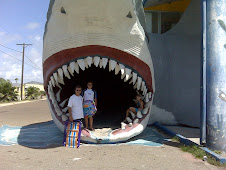Learning should not be boring. In the traditional classroom environment we all know the difference between a teacher who is engaging the students and one who is tired, burned out, just making it through another day. Homeschooling is no different in many ways. Mentoring our children through their educational experience works best for all when the the teacher loves her job of training, teaching, and inspiring students to do better than they think they can. The approach which engages multiple senses, not just the visual or auditory, seems to work best for retention when paired with repetition or drill in the same multi-sensory ways, such as games. Of course, we need some times where old-fashioned hard work that may be boring is required, but this should not persist throughout the entire learning process. Older children will require more "hard work" of reading, thinking and writing and fewer hands-on activities.
Wanda Sanseri's Spell to Write and Read is intensive phonics and it works. Students learn the primary elements of words or phonograms, spelling rules, and handwriting through hearing, seeing, saying and writing. Games and a variety of reinforcement activities provide the drill. This program is fabulous, worth the effort to learn. She encourages using quality children's books to start practice and reading, not just readers. Our children love to read and have nearly turned reading books into a "vice" as I regularly have to tell them to put their books down to do other things.
Cursive First is a companion to SWR for teaching young children handwriting. At her site and in her teacher materials, the author gives a compelling argument for teaching cursive first vs. teaching manuscript based on the history of American education. Put simply, due to undeveloped fine motor skills manuscript is harder for young children to master, and was begun as part of the "progressive" move in education, or the dumbing down of American education. Historically, manuscript was taught later for labeling maps and so on. If you recall seeing a handwritten letter from sixty years ago or more, you will understand the change that has occurred in our population's handwriting skill.
KONOS unit character based unit study curriculum is also our favorite for teaching the extras subjects of science, history, practical living, art and so on. This gives life to a school day. Using the five KONOS D's of Do, Discover, Dramatize, Dialogue, and Drill will breathe life into your day after a morning of seatwork learning math and language arts. Instead of listening to lectures and regurgitating facts, imagine acting out the first Thanksgiving, playing word games with science vocabulary cards, building a log cabin, making a lighthouse, using open-ended questions to lead students to answers.
For learning writing skills we love IEW's Teaching Writing: Structure and Style. Andrew Pudewa's video instruction for both teacher and student give concrete writing practice and samples to help the homeschool teacher and student produce excellent stories, essays, research reports. The student videos may not be necessary because the teacher videos provide excellent preparation.
Curriculum-wise, the best investment we made when we started homeschooling was to attend a Spell to Write and Read workshop where I learned how to use Ms. Sanseri's program. Yes, it was hard to learn at first and took practice, but was worth it. And KONOS learning involves effort to plan and execute, but it engages all of us more in the process than merely using textbooks for science and history. It forces me to become the mentor, not just a clerk. Isn't that why we homeschool? Andrew Pudewa put the joy into our writing. Here's why. I think I could possibly put in his Student Writing Intensive dvd, take a nap, and my formerly writing-phobic students would eagerly do everything he says gladly because he makes them laugh. Joy and laughter, that is the result when all senses are loaded and focused on creativity and learning.
Friday, August 21, 2009
Subscribe to:
Post Comments (Atom)







No comments:
Post a Comment